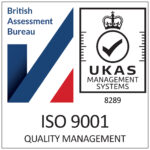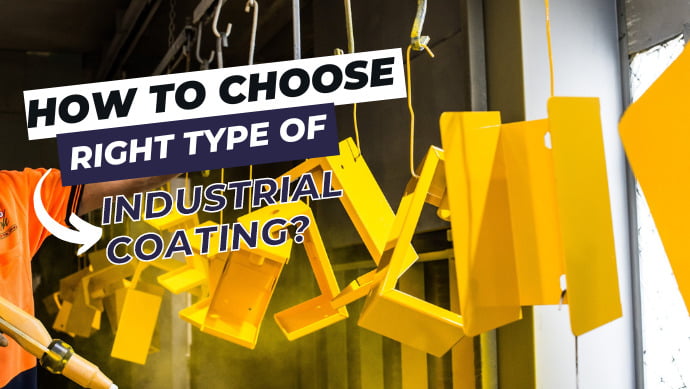Month: September 2022
Selecting the Best Industrial Coating
Industrial coatings are applied to protect a substrate or enhance specific characteristics. Coatings can be used, among other things, to improve conductivity, toughness, or flame resistance.
Industrial coatings are often applied by using a paint, with a priming coat, a secondary coat, and a sealer or top lacquer. The most common industrial substrates are steel, aluminum, concrete, wood, plastic, and composite. Different coating types and application techniques are available, and they may be tailored to fit specific chemistries and application situations. There are industrial coatings everywhere. They can give the coated surface or product a decorative and colorful appearance while protecting it from oxidization, weathering, UV damage as well as wear and tear.
Applications for OEMs include
- Building and construction materials such as doors and windows
- Steel and metal structures
- Glass
- Machinery and appliances
- agricultural and construction equipment
- Sports and play equipment
- Safety equipment
Good quality industrial coatings help to extend the life and improve the appearance of manufactured goods. There is a broad range of potential coated surfaces, which include plastics, metals, wood, and composite materials like glass, rubber, leather etc.
A protective industrial coating may be applied to almost any substance to formulate OEM products.
Manufacturers often put industrial coating in the last phases of production. Their priceless OEM product is strengthened and protected while utilizing the specially designed coating compound during the finishing procedure.
Industrial coatings come in a wide variety of qualities. You and your formulator will collaborate to produce the desired outcome and performance. Additionally, it’s critical to create an outcome that the technicians can employ in your operation’s application procedure.
A concise summary of some higher-performance polymer types that are frequently utilized in OEM industrial coatings has been put up by us. If necessary, these polymers can be created using contemporary, waterborne or low-solvent methods.
Here, we outline some advantages that each application offers:
Polyurethane Coatings
Polyurethane coatings are used by manufacturers in various settings, frequently as a preventative and decorative finishing layer on top of other specially designed industrial primers. These coatings can increase durability and endure abuse and wear and tear by resisting abrasion as we as extreme weathering.
If desired, these coatings can have a lovely, high-shine finish while still maintaining color. Specialised combination coatings of polyurethane and acrylic offer excellent resistant to UV rays and extreme elements. For outdoor applications, these finishes are a suitable option.
Epoxy Coatings
Epoxy coatings typically combine an epoxy polymer and an amine curative agent. Consider the epoxy glue double-tubes you may employ to create a tangible link between the two materials. Formulators can change epoxies’ mix proportions (and components) to produce a broad range of properties. Users now have access to a distinctive coating to satisfy the requirements of various settings.
These coatings adhere firmly to a variety of surfaces. Epoxies provide excellent abrasion and erosion resistance. Furthermore, epoxy coatings can endure greater temperatures compared to most other coating substances.
Epoxy resins, when correctly made, can withstand heat up to several 100 degrees Fahrenheit.
Epoxies are frequently used in two-or three-layer applications. For optimal corrosion protection, a user may choose a zinc primer as the base layer. Over this primer, epoxy is added. A manufacturer may specify a polyurethane topcoat in a three-portion system that consists of an epoxy binder, a zinc base, and a finishing coat for better appearance and functioning.
Alkyd Coatings
These coatings are reliable, industrial, and OEP manufacturer coatings. Alkyd coatings are resistant to environmental influences when applied on prepared substrates. They can be specially manufactured to work well in indoor, outdoor, submerged, and subterranean locations.
To accommodate a range of circumstances, formulators modify the ingredients used to make bespoke alkyd coatings. Since alkyd coatings need to be oxygen permeable, they could dry for long hours compared to other coatings. As a result, heat is frequently used to quicken the chemical curative process.
Coatings Rich in Zinc
Zinc dust is a pigment used in these well-functioning polymers to prevent corrosion and rust. Since high-quality pigments warrant high-performance polymers, epoxy or polyurethane resin binders are frequently used to create organic zinc coatings.
When applied to steel, zinc coatings are very efficient in preventing corrosion because they act as a polymeric and galvanic barrier. Zinc-rich coatings are tough and abrasion-resistant.
Acrylic coatings
The short drying time and high shine capacity of acrylic coatings are only two of their numerous benefits. They work well as primers to encourage adhesion. Acrylics frequently need fewer chemicals and may improve the corrosion resistance of the coated product.
Obtain the industrial coating you require
Because of the wide variety of industrial coatings available in the market, Creative Resins can develop an industrial coating that perfectly satisfies your OEM specifications. The industrial coating formulas we create at Creative Resins are made specifically for your base, final use, and application requirements.



